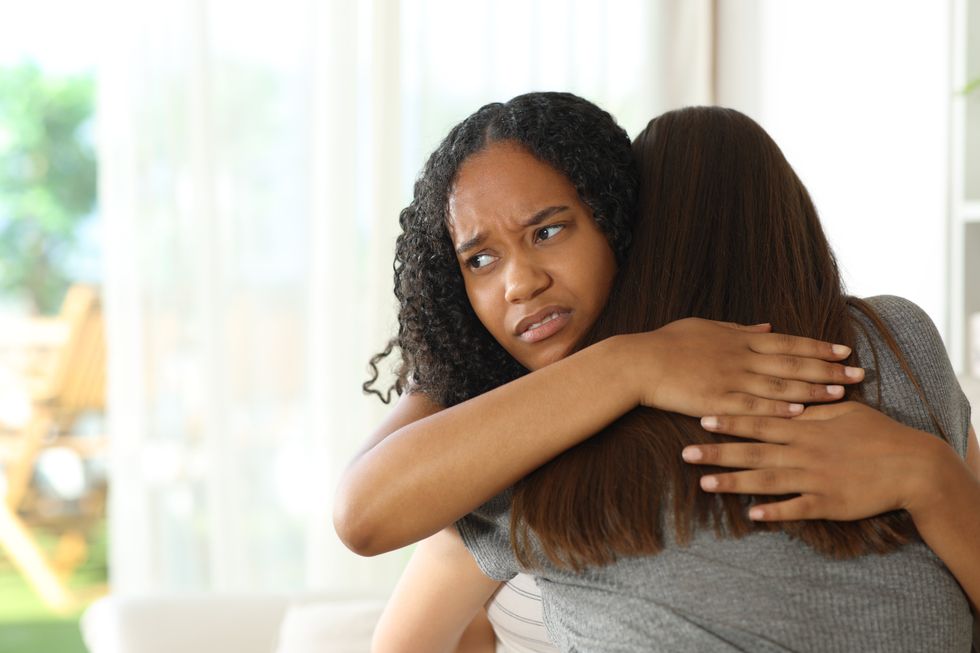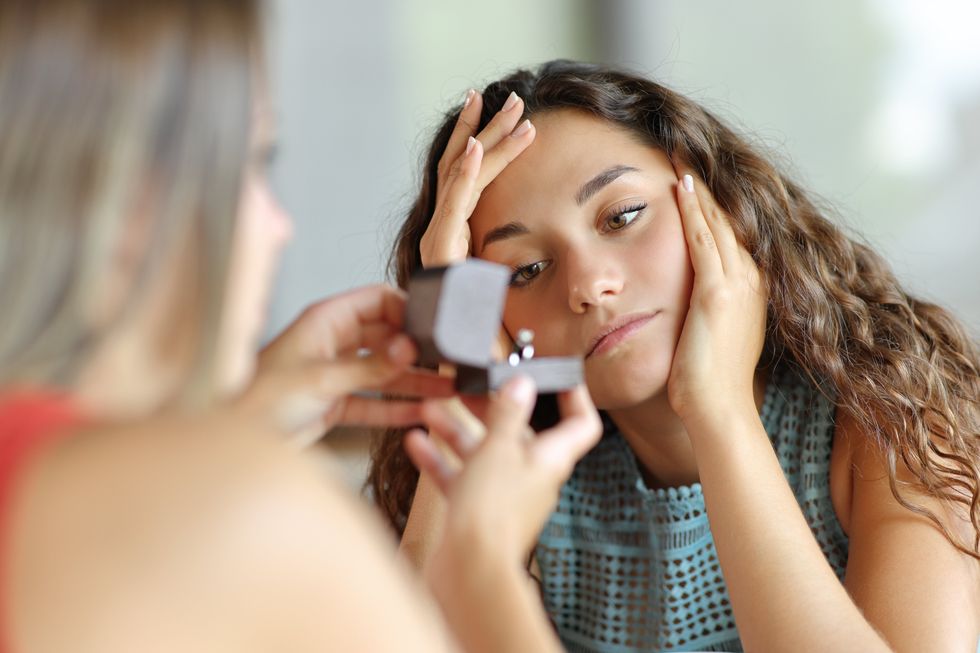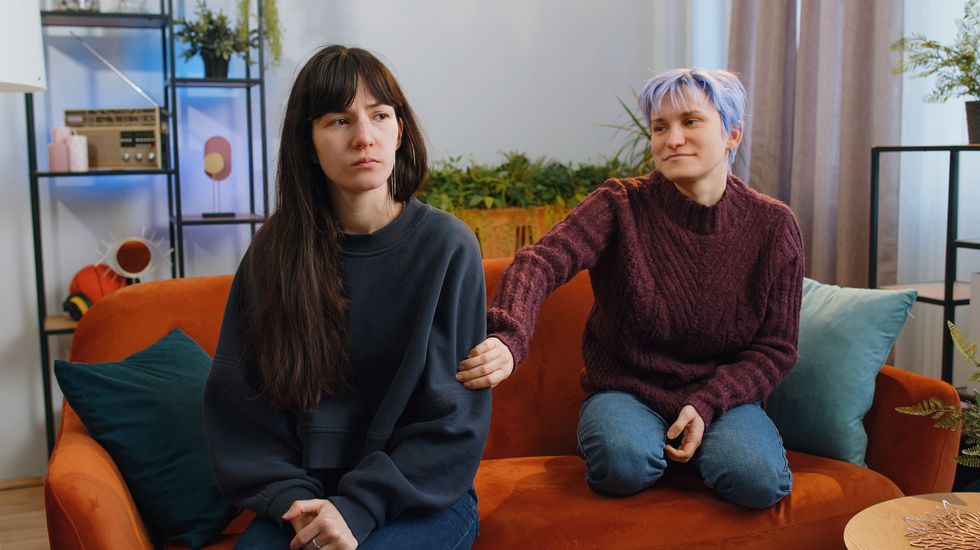
Falling for a friend is one of those beautiful and messy experiences that we all hope to simultaneously avoid and secretly stumble into. It’s complicated, thrilling, and more common than you might think, especially in queer circles. But what happens when platonic turns romantic? How do you handle the spark without setting fire to the entire friendship?
To tackle these questions, PRIDE spoke with two experts: Sofie Roos, a bisexual licensed sexologist and relationship therapist with over 18 years of experience, and Tammy Shaklee, a certified LGBTQ+ matchmaker and founder of H4M Matchmaking. They gave us the tea on why this happens, how to handle it gracefully, and what to do if the feelings aren’t mutual.
Just how How common is it to fall for a friend?

Roos doesn’t mince words: falling for a friend happens a lot. She notes that up to 70% of romantic relationships start as friendships. For queer folks, this phenomenon is even more likely.
“We within the LGBTQ+ community tend to open up more and create a more intimate relationship with our friends,” Roos explains. “We have less fixed ideas about how a friendship should be and are more open to new kinds of friendly relations, and these tend to get intense in a way that cis friend relations don’t get, so queer people are also, therefore, more likely to start catching romantic feelings for their friends.”
Shaklee adds, “I have heard more from lesbian women that they did fall for their high school best friend and even followed her to her chosen college.” For many, that deep connection comes with the risk—and reward—of romantic feelings.
How to handle the "What now?" moment

So, you’ve caught feelings for your friend. Now what? Both experts agree: tread lightly, but don’t ignore the elephant in the room.
Roos suggests testing the waters first and to take the initiative with more intimate activities like a picnic or a movie night. She also recommends honesty is the best policy. “Pick a time and place that feels safe and calm, and say that you feel that what you’re having is more than friendship to you and that you’d like to discover it more.”
Shaklee echoes this approach, encouraging clear communication. “Women are communicators in general, “she says. “Most [lesbian women] tell me they eventually have a conversation with the adult friend or colleague to gently share that some feelings are growing.”
Pitfalls to avoid

Opening your heart is scary enough, but doing so without a plan can make things worse. Roos warns against blurting out your feelings at the wrong time—like over drinks or at a crowded party. More importantly, she says the biggest mistake is making an ultimatum for your friend if they don’t feel the same way.
“This creates a highly pressured situation for your friend and they’re likely to feel pushed to make a call right now even though they might need time to discover how taking a more romantic heading would feel with you,” she says.
Shaklee recommends self-awareness and to make it clear that your friendship still has value. She suggests the phrase, “If you ever feel in the future that you might want to consider a romantic relationship, I invite you to share it with me. No pressure, of course, but I feel safe in telling you that just in case. But for today, I cherish our friendship, and that’s what is most important.”
Roos also highlights the importance of clarity. “Open up so your friend really knows that you’re having romantic feelings for them and not trying to say that you just really like them on a friendship level. That’s a common misunderstanding!”
Rejected? Ouch! Here's how to cope.

Rejection hurts, but it doesn’t have to destroy the friendship and in this case both experts stress the importance of grace.
Roos advises to avoid getting angry at them and to meet them with understanding instead, which gives you an opportunity to react on your own without making things worse.
“The best way to prepare mentally to be able to react in a nice way if getting a 'no' is to beforehand accept that the risk is there,” she says. “Before you truly have accepted that, you should wait with telling. You can’t go in for it without being okay with the outcome of them not feeling the same!”
While Shaklee encourages you to stay focused on the friendship, she also says setting boundaries is par for the course if you’re hurting. “You might set some parameters like only meeting for light lunches, versus late dinners with wine,” she suggests.
Tips on how to get over it

If moving forward as friends feels too painful, it’s okay to step back for a while. Roos says the most important thing is to avoid acting on impulse, observe your interactions together, and go with your gut.
“If you take things slowly, you not only have a greater chance of getting a feeling for how they feel about you, or even making them fall in love with you, but also to save the friendship in case they don’t have any romantic feelings,” she says.
Shaklee emphasizes the need for maintaining the boundaries you’ve set in place, further suggesting to enjoy day trips instead of something overnight. “It sounds simple, but a sober light of day helps to keep things clear, light, and more casual,” she says.
Be brave, but go with your gut

Whether you decide to pursue your feelings or let them go, patience and self-awareness are key. Spend time with your friend and watch for signs of mutual interest, but let things unfold naturally so you don’t put pressure on yourself along the way.
And if it doesn’t work out, be kind to yourself. Let your experience teach you something, even if it’s not exactly the outcome you’d initially imagined.
Falling for a friend is never simple, but with patience, communication, and a little self-awareness, it doesn’t have to be the end of your friendship. With good luck and fortune, it could even be the beginning of something amazing.
Experts cited
Sofie Roos, licensed sexologist and relationship therapist & author at Passionerad.
Tammy Shaklee, certified matchmaker and founder of H4M Gay & Lesbian Matchmaking.
